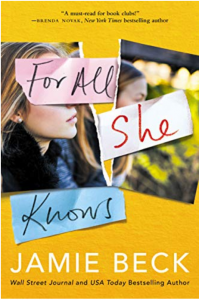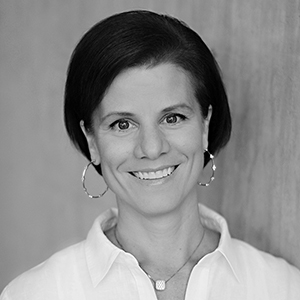From the time my children were born, I’ve been on a mission to do things “right.” For me, that entailed reading dozens of parenting books, talking with child psychologists, and volunteering at a local public health nonprofit organization that focused on helping parents foster healthy child development. When my kids were younger, it wasn’t too difficult. My husband and I agreed on topics like nutrition, screen time, and education. We could control their environment, their playdates, and what they saw on television and the internet. For a time, our kids adored us and thought we had all the answers. We started to believe we did, too. Then came the teen years.
 We expected peer pressure to be the biggest challenge, and it certainly has been an issue. What I didn’t expect was to butt up against friction with other parents and my own husband when it came to the issue of underage drinking. Being a teen from the ‘80s, I assumed all parents would stand united against keg parties and enforce consequences like groundings if they caught their kids drinking. I was woefully unprepared for how parenting styles have changed in forty years. Suddenly the data I’d learned about the effects of alcohol on brain development, and the statistics about how early drinking substantially increases one’s chances of having alcohol abuse issues later in life, didn’t convince everyone that we should work hard to prevent our kids from drinking alcohol. If anything, it became increasingly clear that many parents’ new tack is to try to teach their kids to drink responsibly.
We expected peer pressure to be the biggest challenge, and it certainly has been an issue. What I didn’t expect was to butt up against friction with other parents and my own husband when it came to the issue of underage drinking. Being a teen from the ‘80s, I assumed all parents would stand united against keg parties and enforce consequences like groundings if they caught their kids drinking. I was woefully unprepared for how parenting styles have changed in forty years. Suddenly the data I’d learned about the effects of alcohol on brain development, and the statistics about how early drinking substantially increases one’s chances of having alcohol abuse issues later in life, didn’t convince everyone that we should work hard to prevent our kids from drinking alcohol. If anything, it became increasingly clear that many parents’ new tack is to try to teach their kids to drink responsibly.
My husband was raised in a more permissive environment than I, so like many others in my community, he advanced arguments in favor of that stance, such as:
- It’s safer to have the kids drinking in our home, where we can watch what’s happening;
- If kids feel free to be open with their parents, it will lead to better choices if something goes wrong;
- It’s hypocritical to punish kids for drinking when we did it at their age;
- It’s better for kids to learn to drink before they go away to college; and finally,
- Eliminating the taboo makes drinking less interesting.
On one hand, I understood the appeal of those arguments. All of us are doing our best to juggle our experience, knowledge, and fears as we shepherd our kids into adulthood. We want to engender trust so that our kids will be honest with us. At least in these spaces, all parents find common ground.
Of course, we also know from experience that alcohol-impaired brains rarely make “better choices” in the heat of the moment, and that rampant permissiveness normalizes illegal, risky behavior. Then there’s the issue of legal liability, and the instances of parents who get arrested for hosting parties and of children who get injured at them. And I’m not convinced it’s fair to label maturity and the recognition of the inherent danger you misjudged in youth as hypocrisy. So, at times our home felt like a battleground, with my husband and I parrying and making compromises to forge some peace while trying to keep our kids safe.
My experience navigating this minefield is what spurred me to write FOR ALL SHE KNOWS, in which two friends and mothers must face the consequences of their choices and find forgiveness or risk destroying their friendship and families. I am not a perfect parent, and the story does not cast aspersions or preach. Instead, it raises questions about how to protect teens from reckless behavior. I hope the choices Mimi and Grace make in the book foster discussions about how our own decisions—whatever they may be—affect not only our immediate family, but also the community around us.
I think it’s clear at this point that I don’t have the answers, but maybe together we will find them.
XO-
Jamie



